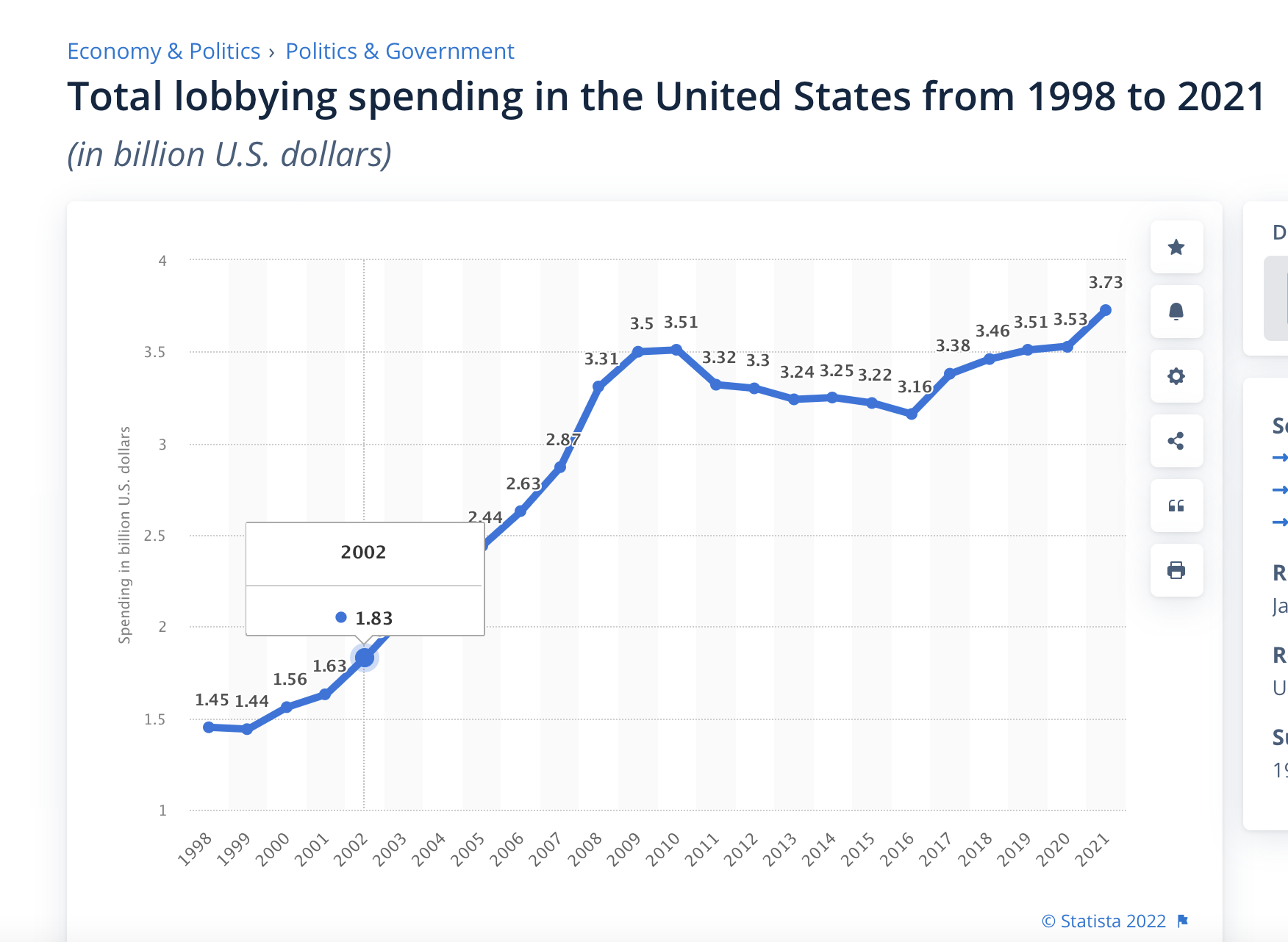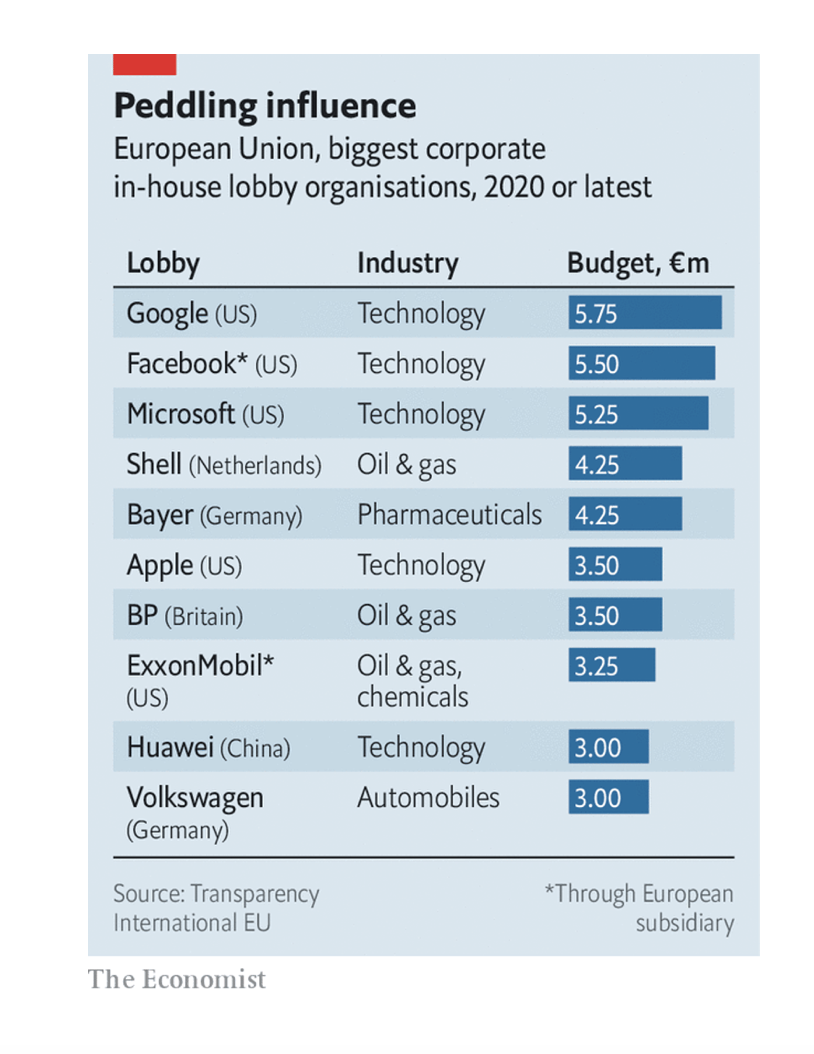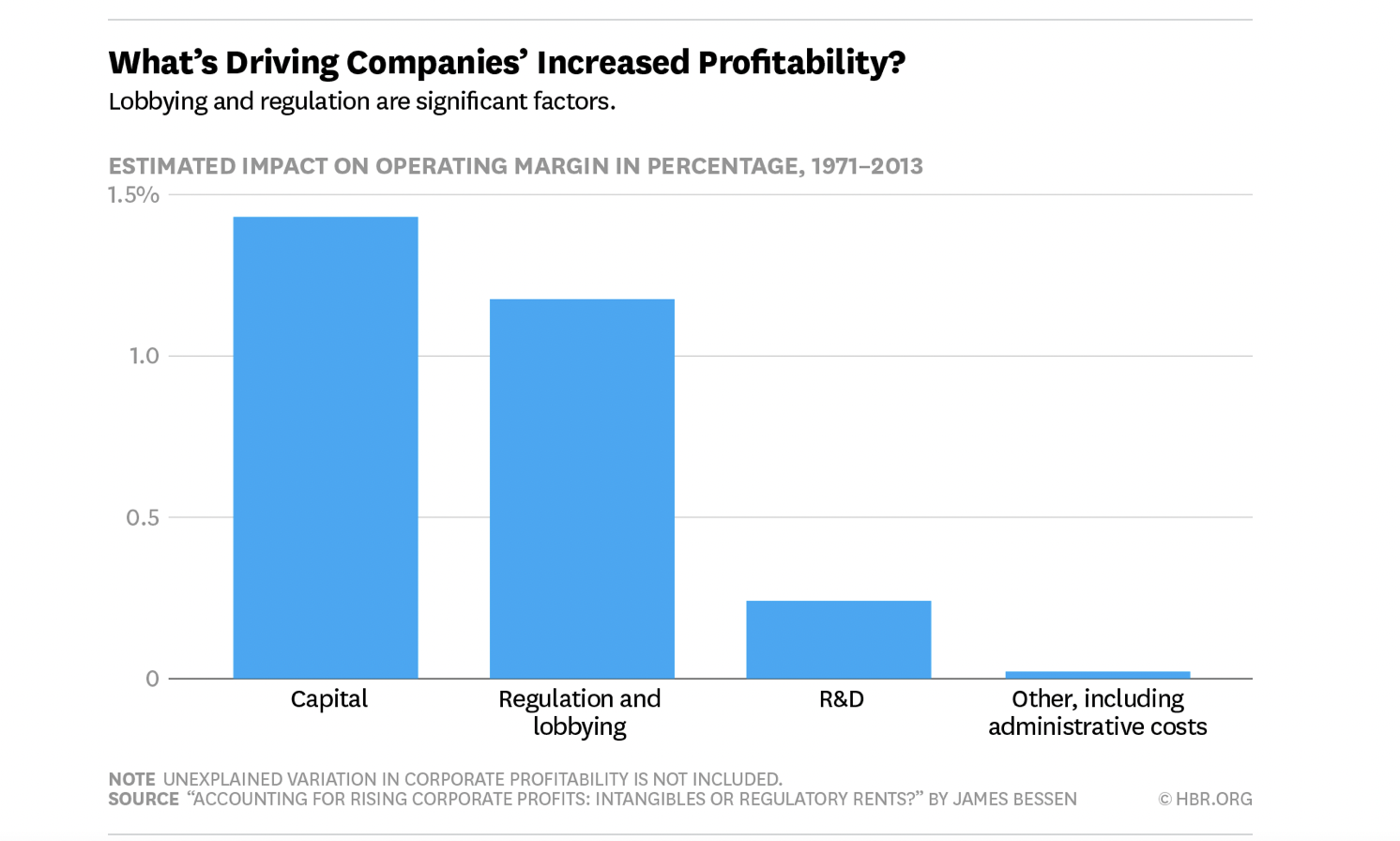A lot of time and money is spent on Public Affairs. A fair question is ‘what is the impact of all the resources being spent?’
When looking at this question, I am reminded of this line:
“Half my advertising spend is wasted; the trouble is, I don’t know which half.” Attributed to John Wanamaker .
I am going to try and answer that question without giving any personal examples and refer to public sources.
- Spending in the US and EU
A lot of money is spent on lobbying in the USA.

Source: https://www.statista.com/statistics/257337/total-lobbying-spending-in-the-us/
And a lot is spent in DC (see link).
Europe seems to be catching up.

Source: https://www.economist.com/business/2021/05/13/the-power-of-lobbyists-is-growing-in-brussels-and-berlin
2. Does it pay
Yes, for some, and others not.
Academic research seems to support the idea that lobbying helps the bottom line.

Source: https://hbr.org/2016/05/lobbyists-are-behind-the-rise-in-corporate-profits
In “Measuring Rates of Return for Lobbying Expenditures: An Empirical Case Study of Tax Breaks for Multinational Corporations” Journal of Law and Politics, Vol. 25, No. 401, 2009, the academics reported that ” lobbying for this provision has a return in excess of $220 for every $1 spent on lobbying, or 22,000%.”
The Economist article quotes Nick Aiossa of ti ” Deep pockets do not equal effective lobbying”, and some who spend a lot don’t get what they want.
3. What’s the case for lobbying
Most companies work in regulated sectors, and the actions of government policy or regulator action can impact their income.
According to McKinsey’s research, government and regulators are in the top 3 for business leaders on ‘Who is going to impact your operating income’.
And, most companies – 87% – recognise that they are not successful at shaping the debate around government policy/or regulatory decisions.
Some NGOs have realised that changing the underlying laws and policies is core to them being able to deliver on their goals. I had the pleasure to work with WWF European Policy Office, which had the foresight to establish a European Policy Office in 1989 under the late Tony Long. The Panda’s paw prints were on decades of European environmental policy.
4. Usual Metrics
Over my 20-plus years in Brussels, I’ve come across the following KPIs to track success:
- Meetings with politicians
- Meetings with officials
- Position papers published
- Press coverage
- Advertising pick up
- Social media pick up
- Parliamentary Questions
- Events hosted
- Attendeess at event
- Attending events/receptions
- Speaking slots at events
- Your research mentioned by politicians/officials
- Amendments tabled
- Money spent.
My heretical view is I think four metrics count
- Did your actions directly change policy/ direction of travel/thinking
- Did your actions change the law
- Did the law get implemented as you intended on the ground with the desired outcome?
- Is your client happy?
- If the Commission or a government cut and paste your policy recommendations and bring you to the drafting table, it is easy enough to see if you are having an impact. Plagiarism software can help here. Is your set piece ‘one-liner’ co-opted by the Commissioner?
If your meeting led the Commission to co-opt your agenda, it counts. I met an NGO who were sure they had an important role in influencing the adoption of a law. The thing was, none of the key players in the Commission, Council or EP had any idea of who they were.
2. I know of cases where the thought leaders and solution providers, through their research and taking their solutions to the Commission and the Member States, led to their ideas being taken into law – e.g. Johnson Matthew on air pollution, EDF on carbon markets. A lot of organisations are shy about advertising success.
3. The real test is if the law/policy that you wanted gets implemented. Europe has a poor track record on implementation in some areas, e.g. environmental policy, so even if you get the law/policy you want, it may not have the impact you wanted.
4. If your client is not happy with the result, it does not matter. If you pull off a political miracle, and your client expected more and is not happy, you’ll not have delivered.